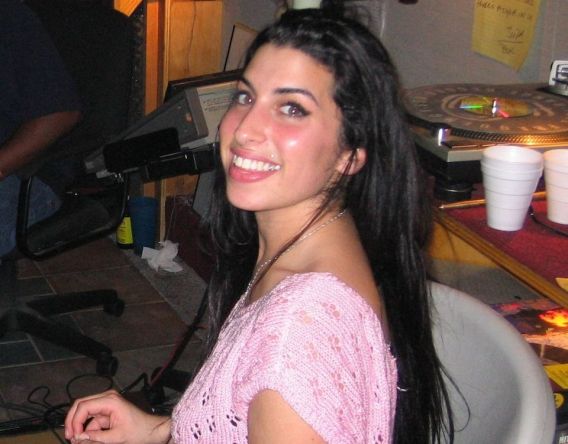
The name Amy Winehouse resonates a mixture of emotions in people across the world. For me, feelings which immediately spring to mind include talent, tragedy, sorrow and shame.
Asif Kapadia somehow manages to capture all of these and so many more, in his 2015 biopic, Amy. Compiled from interviews with those who were around during her rapid rise to fame and media clips documenting her highs and lows, as well as never-seen-before private videos and photographs, Amy delivers the most intimate insights into the late star’s heartbreakingly short life.
To help the audience understand the sort of person that Amy Winehouse was, Asif goes back to 2001, long before the world of celebrity had engulfed her. Amy is just 17 years old; playful, full of life and charisma. Her outward appearance is an apparent picture of health and a stark contrast to the troubled, drug-dependant young woman we became accustomed to reading about in the headlines.

What is consistent throughout her journey is her dedication to music. Her relationship to her artistry is a deeply personal one. Amy herself admits that all of her lyrics are derived from personal experiences and she pours her emotions into them, as showcased through her wonderfully unique voice.
However, she is clearly naive about the music industry and the limelight which goes hand in hand with it. One achieved clip shows a teenage Amy being asked by the interviewer how she believes she will cope with fame. She chillingly replies, “I don’t think I could handle it – I’d go mad!”. Her words are almost a fore-warning for what would later destroy her.
Meeting Blake Fielder was the catalyst for the beginning of her downward spiral. Their turbulent romance was infamously laced with ups and downs, not least their life-threatening drug problems. Winehouse’s management team famously attempted to coerce her into rehab, but this was blocked by her fame-hungry father Mitch.

The documentary exposes a troubled upbringing and early calls for help. By the age of 13, Amy was on anti-depressants, battling bulimia and housing resentment towards her father following his affair – experiences which lent inspiration to the lyrics in her songs.
Amy’s second album, ‘Back to Black’, propelled her to new levels of success. Met with critical acclaim, and earning her a Brit award and no less than six Grammy’s, Amy found herself in the middle of the feeding pit, hounded daily by the press. The paparazzi shown in the documentary are like vultures, and their total disregard for this vulnerable young woman is shameful.
The documentary is careful to show that Amy did seek help for her substance abuse issues prior to her untimely death, and had in fact cleaned up. Following ‘Back to Black’, she went on to record a classic jazz album with her long-time idol, Tony Bennett. During their meeting, she is nervous, self-conscious and star struck, and it is endearing to see glimmers of young, innocent Amy are still there, despite her own immense success.

What I took from the documentary was that Amy Winehouse, regardless of her demons, was simply an ingenuous girl, surrounded by the wrong people. From her manipulative, money-grabbing father, pursuing his own stardom, to her using, estranged husband Blake, who comes across as the biggest leech of all.
As well all know too well, Amy’s story sadly ended in 2011, when she was found dead in her Camden flat, aged just 27. A tragic end to one of this generation’s finest talents. Asif shows that Amy was just a normal girl who never wanted the fame that was thrust upon her, and who was ready to give it all up for peace. I hope she has it now.
